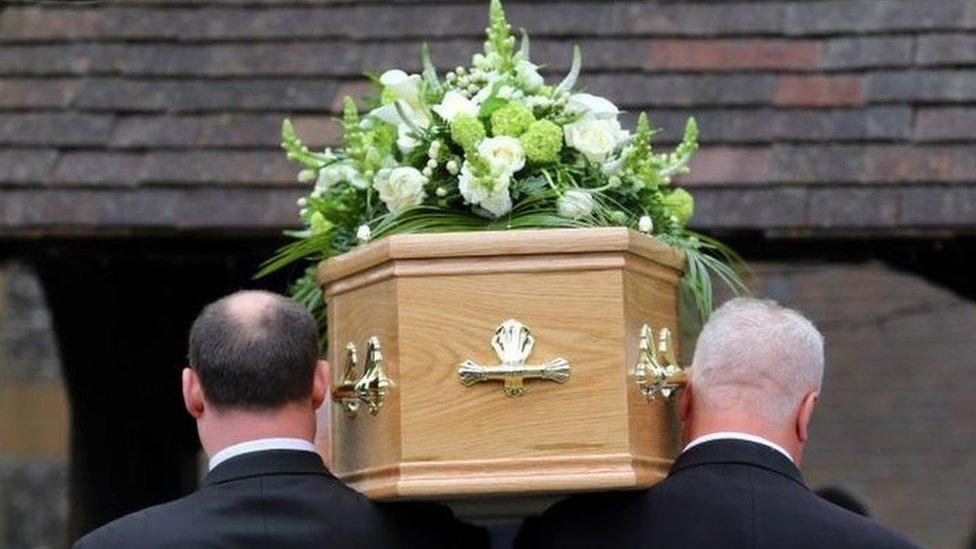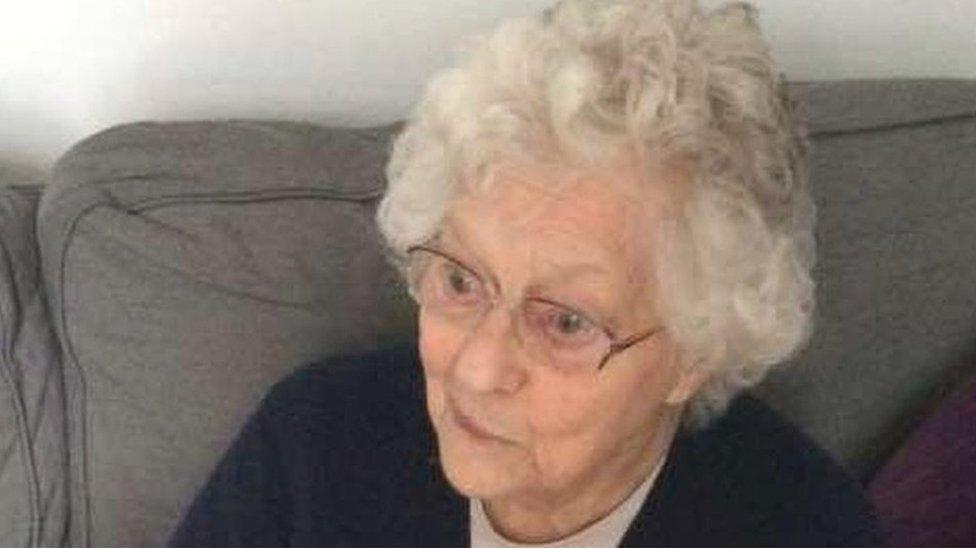'Serious concerns' remain over funeral pricing
- Published

"Serious concerns" remain about the clarity of funeral costs, the UK's competition watchdog has said.
But in a much-awaited and delayed report into the sector, the Competition and Markets Authority (CMA) has ruled out setting price controls.
The CMA said the coronavirus pandemic had prevented that option from being developed.
It has told funeral directors and crematoria to make prices clearer and warned it may look at the issue again.
Previous commentary has likened the sector to "the Wild West", as funeral directors are unregulated in England, Wales and Northern Ireland.
The industry has been waiting for nearly two years for the CMA's conclusions regarding the cost of funerals, crematoria, and other charges faced by families organising a funeral.
In August, the CMA said that the Covid-19 outbreak had made it almost impossible to test more radical options for the sector.
Now, in its final report, it has confirmed that price controls will be ruled out for the time-being.
But it said it should consider whether a further investigation of the sector was needed when conditions were more stable.
That threat has been criticised by smaller funeral directors.
"The proposal for a second market investigation is simply disruptive and appears to be a blanket approach that fails to tackle those large businesses which drove excessive funeral price inflation. It needs to be more nuanced, segmented and specific." said Terry Tennens, chief executive of the National Society of Allied and Independent Funeral Directors.
New rules
It ordered that funeral directors and crematorium operators:
Make prices clearer "in a manner that will help customers make more informed decisions"
Provide information in advance so customers know what they will pay and whether there are requirements for a deposit or similar
Inform customers about a funeral director's other commercial interests
Some practices, such as payments to incentivise hospitals or care homes to refer people to specific directors, will be banned.
The CMA also wants the government to set up an independent inspection and registration regime for funeral director services.
"Organising a funeral is often very distressing and people can be especially vulnerable during this time," said CMA panel inquiry chairman Martin Coleman.
"That's why our remedies are designed to help people make choices that are right for them and ensure they can be confident that their loved one is in good hands."
A report earlier this year by insurer SunLife suggested the average cost of a basic funeral has risen by more than 9% in a year in some regions, with the cost typically £4,417.
The pre-paid funeral sector has been subject to separate inquiries.
Planned legislation by the government will see the City watchdog - the Financial Conduct Authority - take responsibility for regulation of that sector. This is expected by the summer of 2022.

Advice for families
There is a state safety net, the Funeral Expenses Payment, external, available to people in England and Wales on certain benefits, but critics say it still leaves a shortfall that has to be picked up by families. It also operates in Northern Ireland, but is claimed differently, external.
There is a similar scheme in Scotland, known as the Funeral Support Payment, external.
Tips when paying for a funeral in advance:
Tell your family about a funeral plan, or other financial plans to pay the costs on death
Ask questions so you and your family fully understand what is paid for and what is not covered
Keep the paperwork with other important documents so it is easy for your family to find
Do not pay for a funeral plan in cash as there is less of a record of payment
When moving house, inform your funeral plan provider. The cost may be different in the area you move to
Source: Funeral Planning Authority

- Published13 August 2020

- Published6 January 2020

- Published29 November 2018
